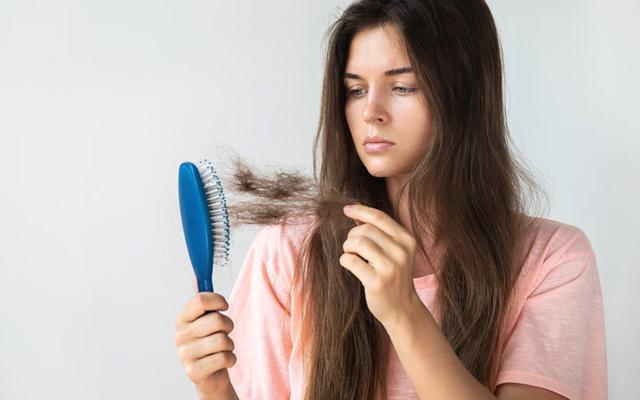
Minor hair loss is absolutely natural. This means your body is removing old hair and growing new, healthy hair. You shouldn’t worry until you lose more than 100 hairs per day. If you don’t know what’s normal for you, try paying attention to what you see in your brush.
If you notice sudden and excessive hair loss, it’s probably time to look for a root cause. Figuring out what’s causing your hair to fall out might be tricky. There are lots of things that can lead to hair loss - especially in women. As soon as you find the reason for your problem, you can successfully treat, manage, or reverse it.
Hair loss is complicated. While some causes of hair loss in women can lead to sudden shedding, others might become noticeable over time. Here are seven possible reasons why you might be losing so much hair:
1. Hormone Imbalances
Women who have reached the age of 30 can face some hormone issues that can lead to hair loss. In most cases, this is due to the excessive conversion of dihydrotestosterone (DHT). DHT is a steroid hormone that binds to receptors in your scalp and provokes hair loss.
Another hormone-related hair loss stems from thyroid dysfunction. If your thyroid gland produces insufficient or excessive amounts of the hormone thyroxine, your hair growth and loss can change. Pay attention to other symptoms of thyroid issues. They are typically accompanied by sudden weight loss or gain, heart palpitations, irritability, fatigue, etc.
2. Nutritional Deficiencies
Nutrients are crucial for your body as well as your hair. A poor diet can lead to various vitamin or mineral deficiencies that typically result in many health issues, including hair loss. If your body lacks iron, zinc, vitamin B3 (niacin), or protein this could be the culprit.
If you suspect a nutritional deficiency, talk to your doctor and perform a blood test to diagnose your problem. Your healthcare provider will possibly prescribe necessary supplements that can help your body replenish deficiency.
3. Oral Contraceptives
Being on birth control pills can make your hair fall out as well. Most oral contraceptives contain hormones that prevent ovulation. These hormones can make your hair thin and weak as well. There is also a possibility that hair loss can occur when you stop taking oral contraceptives.
4. Certain Conditions
While in many women’s hair loss is curable, those who suffer from certain health issues might have an incurable form of hair loss. Even if you have this form of hair loss, it doesn’t mean you’ll be always bald and nothing will help you. If caught early, most conditions can be managed meaning your hair can stop falling out.
Conditions such as telogen effluvium, androgenetic alopecia, scalp psoriasis, alopecia areata, sickle-cell anemia, rheumatoid arthritis, and thyroid disease can trigger hair loss.
5. Aging
Aging is a natural process that consistently destroys your body. As we age, our hair loses pigment, becomes grey, thinner, and finer. To keep your hair strong, shiny, and healthy change your diet. Try eating more whole foods. They will help you keep your body youthful and strong as well as your hair.
6. Heredity
Hereditary hair loss is the most common reason for hair loss in both men and women. You can inherit this gene from either your mother's or father's side of the family.
Hair loss is not a cosmetic concern, this might be a sign something is going wrong inside your body. If you notice changes in your hair growth cycle, contact your healthcare provider to establish the culprit of your hair loss.

